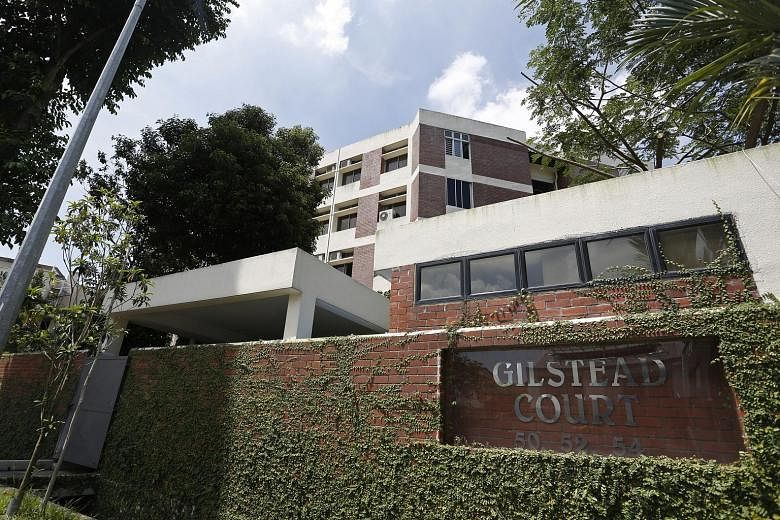The on-again off-again collective sale of Gilstead Court in Newton is not going ahead after all.
The final word on the matter, which has dragged on for two years, was issued by the Court of Three Judges yesterday.
It ruled that the transaction would not be in good faith, which overturns the nod the High Court gave in February to the $150.2 million collective sale of the 48-unit condominium.
The court held that certain clauses in the collective sale agreement "unfairly prejudiced" subsidiary proprietors who did not sign the collective sale agreement by penalising them for holding their view, Chief Justice Sundaresh Menon found. This was not in line with the principles of good faith governing collective sales, he noted.
In a reference to the Horizon Towers case, he said the collective sale committee has a duty of even-handedness in balancing the interests of objecting and non- objecting owners. "The collective sale regime aims to protect the interests of the minority. The minority must not be prejudiced."
Among the clauses deemed objectionable, stalling the sale bid since late 2013 - owners who did not pay an initial contribution before a closing date would have had double that amount withheld from their share of sale proceeds, to be used for the cost of the sale.
Those who did not agree were also liable for the costs of getting approval for the sale, and the costs associated with any delay in getting the proceeds.
As a result of these clauses, dissenting owners could stand to get about $42,000 less than owners who agreed and paid the initial contribution, according to calculations by Morgan Lewis Stamford partner Adrian Tan, representing three minority owners in the appeal against the collective sale.
Former High Court judge Warren Khoo, the sale committee secretary and a respondent in the case, argued that the collective sale agreement, as a contract agreed on by majority owners, should be adhered to, not "unravelled".
The fractious journey started in June 2013, when the offer by Dillenia Land - a subsidiary of Tuan Sing - was accepted, with subsidiaries of 43 of 48 units signing up.
An application for the collective sale was made but the Strata Titles Board issued a stop order in October that year, as the five dissenting owners objected to the penalties.
A split erupted in the sale committee later, with some in favour of removing the penalty if objecting owners consented to the sale; and others insisting that they be bound by all terms of the agreement.
The High Court gave the sale the green light in February, but amended and struck out some of the objectionable clauses.
Mr Dominic Lim, one of the appellants, said he was happy he would not have to move from the condominium, which is near his parents' home.


